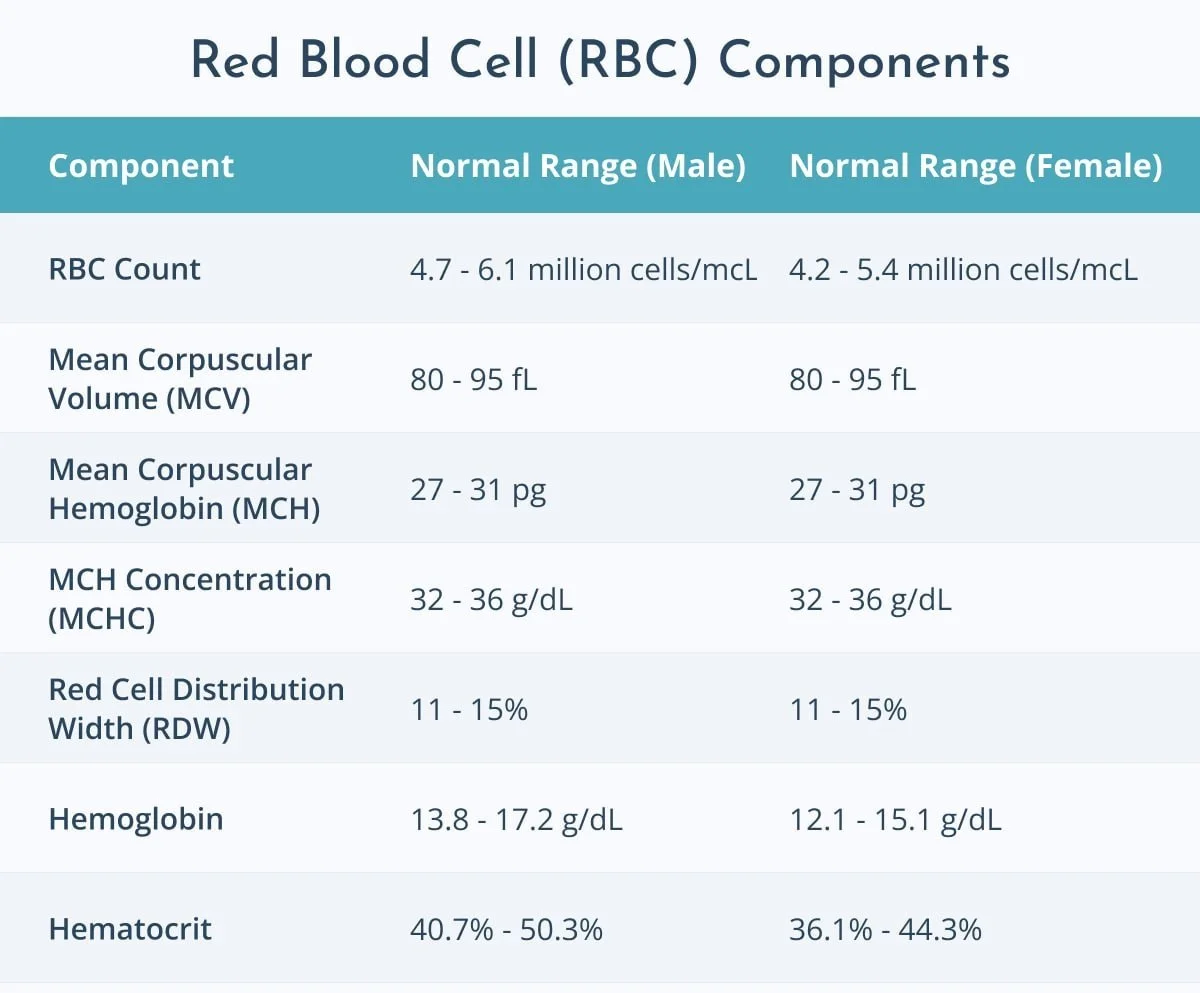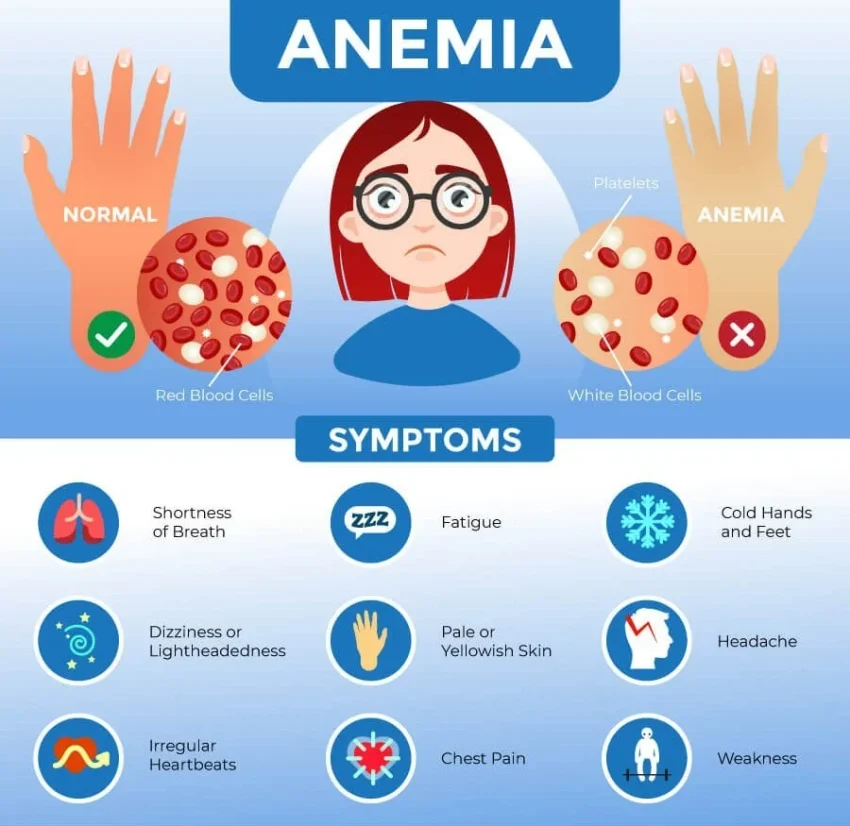🩸Anemia :- A condition in which the blood doesn’t have enough healthy red blood cells.
Anemia results from a lack of red blood cells or dysfunctional red blood cells in the body. This leads to reduced oxygen flow to the body’s organs.
🔸🔸🔸🔸🔸🔸🔸🔸🔸🔸🔸
⭐️Causes:- 1. Excessive 2. Bleeding 3. Leaky Gut 4. Low Stomach Acid 5. Iron deficiency 6. B12 Deficienc 7. Folate Deficienc 8. Poor Diet 9. Chronic Diseases 10. Intestinal Disorders 11. Infections 12. Kidney Disease
13. Liver Disease 14. Thyroid Disease 16. Pregnanc 17. Enzyme Deficiencies 18. Autoimmunity
🔸🔸🔸🔸🔸🔸🔸🔸🔸🔸🔸
💉Treatment :- It can be treated orally or intravenously, depending on the cause of anemia
Treatment depends on the underlying diagnosis. Iron supplements can be used for iron deficiency. Vitamin B supplements may be used for low vitamin levels. Blood transfusions can be used for blood loss. Medication to induce blood formation may be used if the body’s blood production is reduced.

🩸 A complete blood count (CBC) test measures many aspects of your blood, including:
✔️Red blood cells (RBC): The number of red blood cells in your blood, which carry oxygen from your lungs to the rest of your body
✔️White blood cells (WBC): The total number of white blood cells in your blood, which fight infections and other diseases.
✔️Hemoglobin: The amount of hemoglobin in your blood, a protein in red blood cells that carries oxygen
✔️Hematocrit: The percentage of your blood that is made up of red blood cells
✔️Platelets: The number of platelets in your blood, which help your blood clot to stop bleeding
✔️Mean corpuscular volume (MCV): The average size of your red blood cells
A CBC can help a doctor monitor and diagnose a variety of conditions, including anemia, infection, and leukemia. Abnormal results can be caused by infections, medications, anemia, and cancer.
